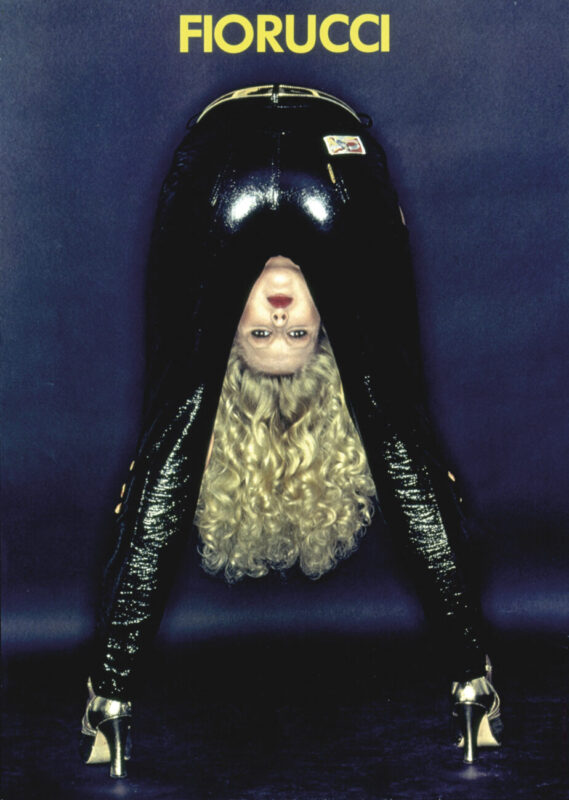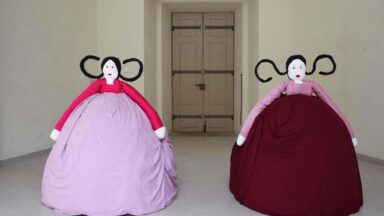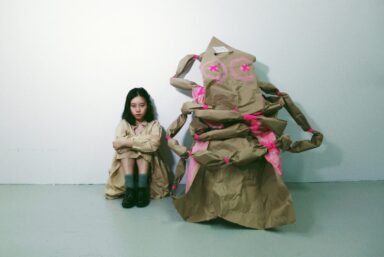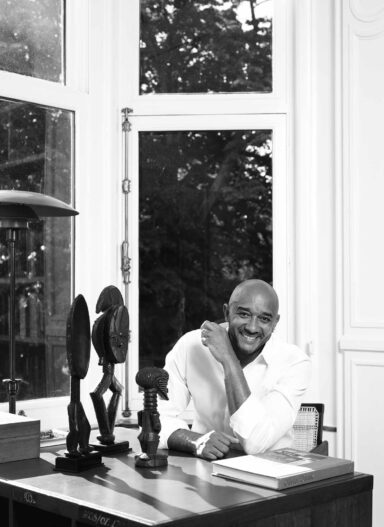To celebrate Oliviero Toscani’s 80th birthday with his own words, we republish an interview from Collectible DRY Vol. 4
The master Oliviero Toscani celebrated his 80th birthday some days ago. With more than fifty years of career behind, Toscani is acclaimed as one of the greatest photographer of the century. Collectible DRY is pleased to omage his creative mind reproposing an interview by our Editor-in-Chief Silvia Motta, first time published in the fourth paper issue of the magazine.
OLIVIERO TOSCANI: PHOTOGRAPHY IS A POLITICAL MESSAGE
Silvia Motta: When you took those photos – which are today considered iconic and opened up a whole new, imaginary world – did you already know what you wanted to say? Did you have a specific project in mind, or were they simply a form of provocation?
Oliviero Toscani: Provocation is a consequence. You have to provoke interest. Why has that word taken on a negative connotation? All art is provocation.
SM: Did you know that there was a political statement wrapped up in that provocation?
OT: Every photograph has its own socio-political message. It’s just that those produced by ad agencies aren’t intelligent. Too bad for them. I’ve never worked with any ad agencies.
SM: But Oliviero, you did once, with Pirella…
OT: Forget Pirella! Pirella distributed the means. He had nothing to do with the creation of images. Nothing. He worked the same way as Agenzia Italia, distributing the means. He looked for spaces. And back then anybody who was looking for spaces signed the campaigns as well, so Pirella stole the credit. I did that work together with Maurizio Vitale. I’ve always worked with the bosses.
SM: Did you invent the slogan?
OT: No, no. Maurizio Vitale and I did together. The word “Jesus” popped up on Broadway. Maurizio and I were there, in 1972, after I’d been breaking his balls for six years to make blue jeans, and he finally decided to make them. That evening we were walking together along Broadway, wondering what to call them. We saw the title “Jesus Christ Superstar” and I said, “Hey, look! ‘JJ.’ That’s not a bad name…” You see, you could never work that way with an agency. You’ve been lucky enough to encounter a few true visionaries along the way… Luck’s got nothing to do with it. There’s no point in working with stupid people. Frank Lloyd Wright once said, “The quality of your architecture depends on the client’s intelligence.” You have to find intelligent clients if you want to do good work. There’s no way around it! It’s pointless to go work for a newspaper if it’s run by an idiot! The newspaper will be idiotic as a result…
SM: So Oliviero, you already had the project in mind? You were very young then, and already a legend by the time you were 30. You’d become a global figure, even though there was no internet, no social media. You became a legend overnight.
OT: A legend… I was talented. I’m part of my generation. I’m the same age as Muhammad Ali, the Rolling Stones, The Beatles, Bob Dylan… That’s my generation. Bob Dylan was a legend by the time he was 20 too…
SM: Yes, and we can undoubtedly place you within that sphere. But the other photographers of your generation never became what you have become. How would you define yourself? What are you? A photographer, philosopher, politician…
OT: I’m an author. I use photography to bear witness to my times. That’s it. It’s not like the photographer is the guy who knows how to use a camera and the writer is a guy who knows how to use a typewriter or computer. A writer is an author, and a photographer should be the same. Instead it’s always photographic skill, craft… I was never a photographic craftsman. To be honest, I find the means and machines of photography a little tiresome. But you have to use them if you want to express yourself.
SM: To what extent did attending the prestigious school in Zurich – the Kunstgewerbeschule – influence you?
OT: A great deal. It was the best school. There I learned about Bauhaus, five years of art school. I know typography, characters, pagination… The man who taught me about color was Johannes Itten, a true master of Bauhaus colors. Max Bill. Incredible teachers. There was a great deal of discipline for shapes, and especially the concept of what you draw. And my generation also had the good fortune to be a part of a generation that overthrew the status quo.
SM: But you were the only one capable of leading fashion imagery to such extreme consequences…
OT: Well, you know, on average photographers are not highly cultured, educated people. They improvise. A guy stands up and decides to become a photographer. But I was fortunate enough, first of all, to be a second generation photographer, so I already had a certain kind of culture of the image, and then the school, then my generation… I’ve been very lucky.
SM: Your father was a photo reporter. Did that influence your training?
OT: Yes. Basically it was news, knowing what was happening out there in the world. There was no television, not like today. Now we waste our time with social media; back then communication took place in 360 degrees. I didn’t care if it was advertising, journalism or publishing. Getting put in print meant getting put in print. The poster is incredibly important.
SM: Do you feel there was a magical moment? How do you see the present day?
OT: Today is always magical, always interesting. I think we’re experiencing an incredibly interesting moment.
SM: But there’s not enough courage. Back then there was a lot of irony in your messages, a lot of detachment, a lot of intelligence. Today it seems that there are far more mannerisms in things…
OT: Things have been going downhill ever since they invented this word “marketing.” We even created a financial crisis. Marketing, in other words doing things in relationship to a market, produces mediocrity. Everybody’s looking for consensus. At heart, you want your magazine to sell, right? So in order to sell, you have to adapt to marketing. That’s a big mistake. This search for consensus creates mediocrity. Back then the search for consensus was different than it is today, where we think it’s right to do whatever marketing tells us… In my opinion, if you want to be successful you have to listen to what marketing tells you to do, then do the exact opposite.
SM: Ultimately you did things that made a major break with the past, and sold lots of shirts through a message, a socio-political message. But at a certain point it wound up on a collision course. Do you think your message had extended further than you’d intended it to?
OT: Clearly the Benetton brand had become too limiting for me. That’s logical. But it also gave me an opportunity to be present all over the world. In Italy it was much more interesting to work for a company like that, rather than working for a magazine like L’Uomo Vogue. L’Uomo Vogue was just L’Uomo Vogue.
SM: Naturally that’s true, but to what extent did the very fact that you used this means lead you to develop your
own, political project? In reality, you were in politics. You’re a person who is deeply committed to social causes. Have you always used your own conscience to combat society’s false consciences? What led you to decide to use a message – a message that couldhave been merely commercial and trendy – as a way to communicate something different to your audience?
OT: There’s no such thing as a commercial message for fashion. There are interesting messages, or uninteresting messages. That’s it. You try to do something interesting, seeing as you have this chance to benefit from an incredible distribution system that sends your image all over the whole world. That’s why you try to do something interesting. Young people were a lot more interested in AIDS than they were in a lot of the other bullshit that fashion talked about or didn’t talk about. Have you ever worried about body commodification?
SM: No, no, no, no. Obviously I’ve considered the problem, but I don’t think it can be resolved like those that have those, you know, grandma complexes. What does “body commodification” even mean? Doesn’t it exist in Michelangelo’s Pietà too? Well, then! Art is full of body commodification. Here’s the problem: you can’t be a merchant, yet you have to deal with a market. Everything takes place in light of a market. OT: If we think about the way the female body is used in sacred imagery, for example a nursing Madonna… Yes, it’s there in art, in Picasso, in everything… But that’s not commodification. It’s not true!
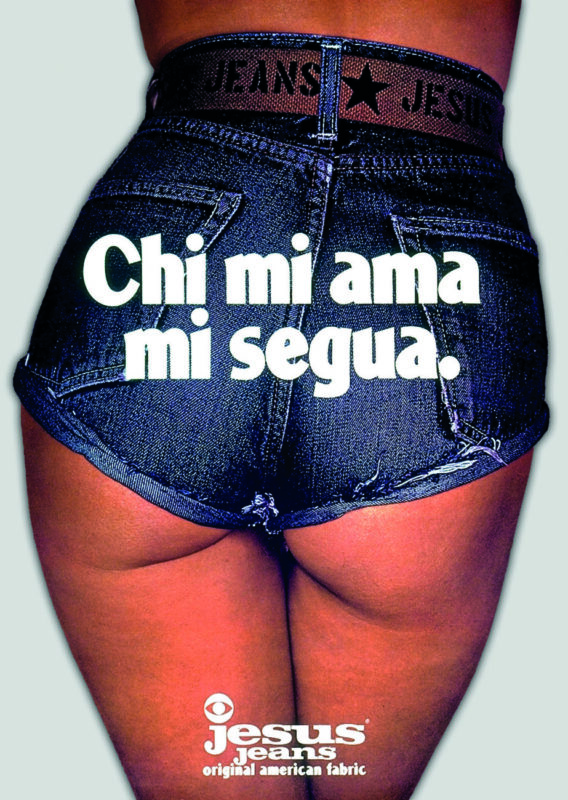
SM: Do you think we’re living in a particularly puritanical era?
OT: No, it’s not puritanism. It’s the era of being afraid you won’t have enough money. Economy! Fuck puritanism! Now it’s
total immorality. People work, do everything, based on a relationship with money. That’s what’s immoral. We throw our lives away just struggling to make sure budgets are balanced, becoming mediocre, castrating ourselves just so that we can make it to the end of the month. Economy has got us by the balls and by the throat. We should have given power to the musicians and artists, not to these asshole Bocconi graduates. These economists, this Mario Monti, these imbeciles of modern finance. What’s worse, they don’t ever really know what’s going on. If you ask them what’s going on, they don’t even know what to say. One day the balance sheets look good, the next they’ve gone to hell. I
think they’re a bunch of idiots! Yet they’ve got our destinies in their hands.
SM: Yes, that’s the problem with democracy. They make you believe you’re in charge of your own destiny, simply because you can vote. But in the end you don’t really have any power, do you?
OT: And people need to know it. That’s all.
SM: Maybe we need to come up with another formula…
OT: It’s all in the rules: you have to make advertising thisway, that way…but that’s all bullshit! Believe me, you canoverturn everything. All you need is courage.
SM: People need courage, but in the end, they need to know how to have fun too, don’t you agree? You have to have fun with what you do…
OT: It’s not important what these economists tell you. Not in the least. They make me laugh. I’ve never gone into a bank in my life. There’s always someone else, my mother, my sister, my wives… It’s logical!
SM: Let’s talk for a moment about the female universe. What is female? What is a woman to you? …Beauty?
OT: That too, of course. That’s everything too.
SM: Love?
OT: That too, naturally.
SM: You’ve never been a romantic person, but in the end you’ve become quite romantic too…
OT: What does “being romantic” mean? Sweet-talking…?
SM: No! Being romantic doesn’t mean being overly affectionate. Being romantic means being someone who experiences feelings.
OT: I’ve been an honorable man.
SM: What do you think of scrap heaps in politics? Do you think we should toss this conversation into one?
OT: This idiot Renzi is a true fuck up. A Christian Democrat. He’s just like Berlusconi, the spitting image of Berlusconi.
SM: You are a maestro, a grand maestro. In my opinion, no one’s been able to imitate you. My point is that you can’t be imitated. If you say ‘Newton,’ you’ll immediately find a horde of photographers who have copied him. If you say ‘Penn,’ same thing… But you’re unique. How did
you do it? What do you have that the others lack?
OT: I think photography is a means to an end. I’m not a photographer because I like photography. You need a whole series of motives, history; you have to bear witness to your times. You have to add politics, ethics, the human condition. If you can add all that, you’ll be creating an image that belongs to its era. An image of that which you’ve experienced, especially in its form and substance.
SM: Do you consider yourself a witness to your times?
OT: Absolutely. That’s my job. Witness to my times.
SM: And those are pretty extensive times, because you started when you were quite young…
OT: Yes, it’s been over fifty years now. Did you see the book? It’s titled Più di 50 anni di magnifici fallimenti (More than fifty years of magnificent failures), published by Electa. You’ll find lots of people’s opinions in there. Everybody shares his or her opinion of me.
SM: Do they usually have good things to say, or bad things to say?
OT: They don’t have bad things to say… I have to admit it’s interesting. They analyze my work.
SM: Do you think they do an accurate job of describing you?
OT: Yes, each in his own manner, in different ways. I like criticism. I like to reason things out, discuss, be controversial, ferret out the reasons why someone is criticizing you. When someone criticizes you, it means that for better or for worse your work has made an impression. If they criticize you, it means they’ve thought about you. Maybe they don’t like you – it’s a judgment, and judgments are born of consideration and analysis, and I find that interesting. I’m not interested in being right. When everybody says I’m right, that’s when I start thinking maybe I’m wrong.
SM: What do you think of this world of ours?
OT: It’s wonderful! We’re moving slowly, very slowly toward civilization. But we still have some dark years ahead.
SM: Are you still teaching? Do you still have a school?
OT: No. I teach some master classes, once a month, together with the psychiatrist Paolo Crepet, in order to teach students where to start photographing… Why we take pictures, what we take pictures of…especially the why. And not the camera’s aesthetic pleasures. I hate that.
SM: What’s changed with the advent of digital?
OT: Nothing. Absolutely nothing. Actually one thing: we’re polluting the environment less. We don’t use chemicals any more. They finally invented it.
SM: What about image manipulation?
OT: That existed before, too. Photography is like theater, and thetheater manipulates reality as well.
SM: What are you mostly focusing on right now?
OT: For over ten years now I’ve been working on a piece titled “la
razza umana” (The human race). I travel around the world with a white backdrop and shoot people in public squares. I’ve collected 70,000 portraits. Out on the street, just an itinerant photographer. But I give those photographs away. I don’t accept any payment for them.
